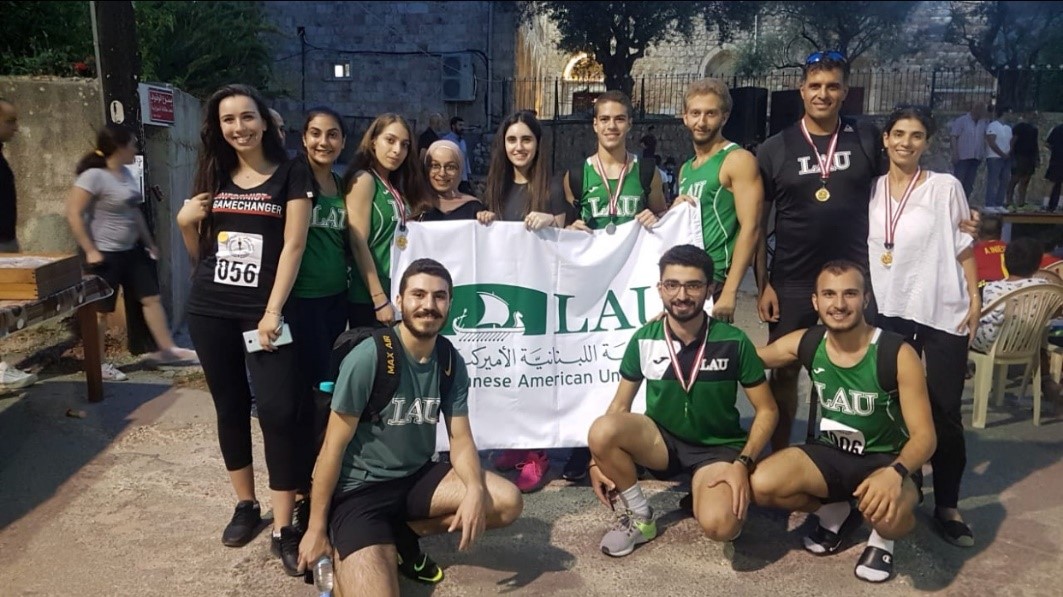 After over 70 years supporting university sport, the Lebanese Federation of University Sport (FSUL) is still going strong in supporting university sport participation across the nation. Involved in the Lebanese university sport system is Mr. Sami Garabedian (pictured left, far right side)— current Vice-Chair of the FISU Education Committee and FSUL Secretary of International Relations, who sat down with FISU Student Ambassador, Karim Harik, to tell us about the inner workings of the FSUL.
After over 70 years supporting university sport, the Lebanese Federation of University Sport (FSUL) is still going strong in supporting university sport participation across the nation. Involved in the Lebanese university sport system is Mr. Sami Garabedian (pictured left, far right side)— current Vice-Chair of the FISU Education Committee and FSUL Secretary of International Relations, who sat down with FISU Student Ambassador, Karim Harik, to tell us about the inner workings of the FSUL.
Giving a brief overview of university sport in Lebanon, Mr. Garabedian explained that there is now a new sports ministry initiative that regulates sport in Lebanon. He mentioned that there are currently twenty-four universities that are officially recognised by and registered with the ministry. Out of these universities are currently engaged in university sport, the total number of enrolled students at these universities has now reached over 100,000 with their national university—also accounting for 65% of the student body.
“FSUL has been very much involved with FVLA and FISU Student Ambassadors since its launch back in 2017,” said Mr. Garabedian. “Four of our most deserving students are considered as FISU Students Ambassadors. We worked with them successfully during the last two years on the promotion of IDUS and a couple of other local projects.”
When asked about challenges for the federation, Mr. Garabedian touched on recent events that might have created some hurdles for ongoing projects of the federation—namely getting through the COVID-19 pandemic like many other organisations.
He explained that because of this setback, all projects and competitions have come to a halt and have been postponed for almost 18 months (since March 2020). However, FSUL is hopeful that with the country wide vaccination campaign at the collegiate level in full swing (at almost all universities in the country), they will be able to reach something they call “university community immunity”—resuming normality not only in college life, but the university sport community as well. “We are holding periodic meetings with our constituency and putting together a vision for the next phase” affirmed Mr. Garabedian.
 “Under normal conditions and circumstances, our NUSF also usually gets some sort of financial support from the Ministry of Youth and Sports to cover its administrative and organisational costs,” he explained.
“Under normal conditions and circumstances, our NUSF also usually gets some sort of financial support from the Ministry of Youth and Sports to cover its administrative and organisational costs,” he explained.
“Now it is the individual universities themselves that financially contribute to the running and organisation of NUSF events. Moreover, under the new bylaws, all recognised and licensed universities engaged in university sports will now be required to pay a one-time affiliation fee in addition to a yearly membership fee. These contributions will most certainly help in minimising the financial burdens on our NUSF after a challenging year.”
Mr. Garabedian also explained that new bylaws have been drafted and are awaiting approval by the Ministry of Youth & Sport (MOYS). Once a new Executive Committee is also established at FSUL, only then would the new Executive Committee work on both short and long-term goals, along with plans to draw an exciting roadmap for the future.
The FSUL is well on track despite all the challenges it has faced and has proven that it is doing its absolute best to resume activities and ensure a promising future for its student-athletes nationwide.